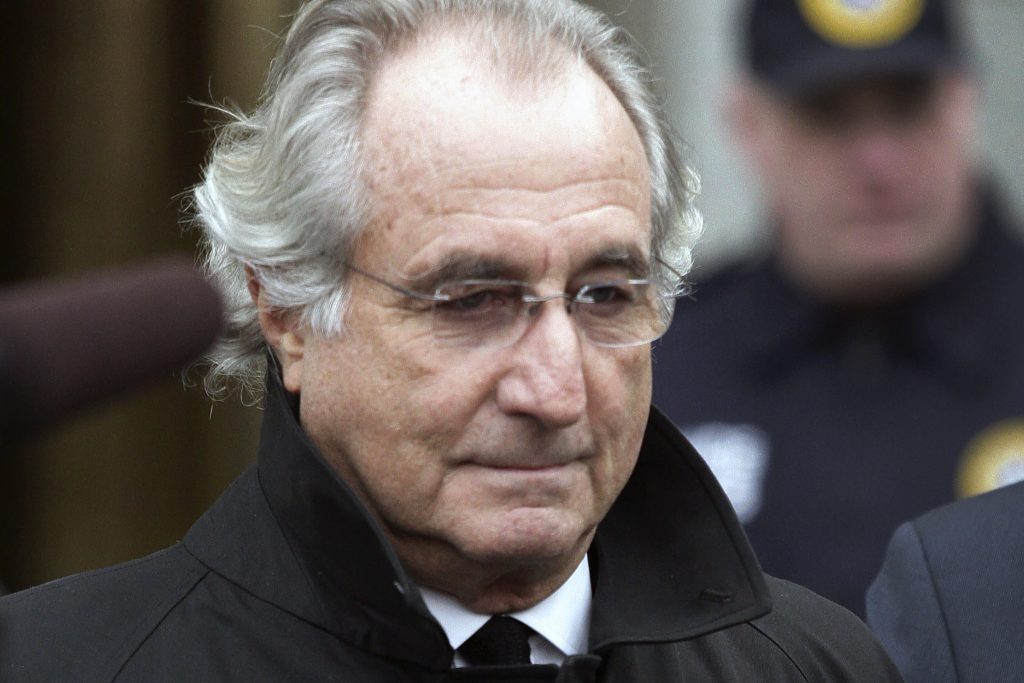
“It’s all a big lie.”
That’s how Wall Street icon Bernie Madoff broke the news on December 10, 2008, to his two sons that his world-renowned investment fund was actually a gigantic Ponzi scheme – the biggest financial fraud in American history.
Tens of thousands of investors had entrusted Madoff with their treasure, many of them betting their life savings that he really was the genius he pretended to be.
A classic Ponzi scheme promises high returns on investments. But payouts happen only if there’s a constant influx of cash from new investors. For decades Madoff had faked records of stock deals and trades that had never taken place. When Wall Street was shaken by the Recession of 2008, some of his investors asked to withdraw their funds for safekeeping. Only then did he reveal that the money was no longer there.
On paper, Madoff’s accounts were worth almost 65 billion dollars. How much money was actually in the bank? Something like $300 million. Overnight, some of the world’s richest people learned they now owned nothing but the clothes in their closets and the cars in their garages.
The list of Madoff’s victims was a veritable Who’s Who. Steven Spielberg, John Malkovich, Kevin Bacon, Jeffrey Katzenberg, Larry King, Sandy Koufax, and Zsa Zsa Gabor all lost millions. The fraud wiped out numerous trust funds, family estates, philanthropic endeavors, and corporate pensions.
Holocaust survivor and Nobel Peace Prize winner Eli Wiesel had entrusted his $15.2 million Foundation for Humanity to Madoff’s care. Now every dime was gone. When asked if he could forgive Madoff, Wiesel thought for a long time and then said, “No, I cannot.”
Why did Madoff do it? He loved being regarded as a genius. He was thrilled at being the guy who wrote the big checks at fundraisers. He reveled in people’s praise that he was that one rare person that investors could actually trust.
But it was all a lie.
Madoff’s 46-year-old son Mark committed suicide two years to the day after his father’s confession. His other son Andrew died of cancer in 2014. When Bernie was sentenced to spend 150 years behind bars, no one expected him to see another day of freedom. He died in jail earlier this week at the age of 82.
“Monster” is a word often used to describe Madoff . How could he possibly live with himself?
In her book The Wizard of Lies: Bernie Madoff and the Death of Trust, Diana B. Hendriques makes the disquieting suggestion that the scariest thing about Madoff is not that he is some kind of soul-less, heartless monster, but that he is someone just like us – someone that many people chose to trust. “Almost every Madoff victim trusted him precisely because he seemed so trustworthy.”
She continues: “We all delude ourselves about ourselves every single day. I’m not going to get cancer, even though I smoke. I drive better after a few drinks. I’ll pay off that credit card debt next month.” Bernie Madoff’s lies were massively larger than ours, and they lasted far longer. But all of us struggle with truth-telling: being honest with each other and honest with ourselves.
Which brings us to this frightening question: Is there anyone we can really trust?
Trust is risky. It makes us vulnerable to disappointment, perhaps even disaster. But paradoxically, if we avoid trust, we will never experience the depths of love or joy. Choosing not to trust means settling for a life that is hardly worth living.
What we know for sure is that we have to trust someone.
Who do you trust to address these issues: “This is the nature of Reality, and here’s what you need to do about it”?
You might choose Buddha. Or astronomer Neil DeGrasse Tyson. Or Plato. Or Shirley Maclaine. Or Jesus. Or Karl Marx. Or Kim Kardashian. Or Muhammad. Or Michael Jordan. Or your favorite author, philosopher, coach, parent, or friend.
If you decide that no one is worthy of your trust, you’re actually casting a vote for yourself. You’re betting everything that your cynical assessment that the universe is a hopelessly untrustworthy place will turn out to be correct.
There’s a reason Proverbs 3:5 is one of the most cherished verses in Scripture: “Trust in the Lord with all your heart, and don’t rely on what you think you know.” (The Living Bible)
More than we can ever know, life comes down to a single question:
Who do you trust?
Our answer will prompt us to address this question, too:
What am I doing today to grow my trust in the most trustworthy person I know?
